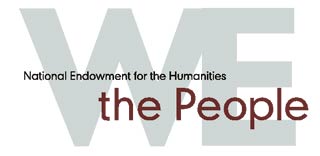Resources » Rowe’s Revolution

What comprises a day in a single person’s life? What does it mean to have daily concerns; a family to care for; a successful business to run; to be civically engaged with an active social life; and to have friends who don’t all see eye to eye? Moreover, what does it mean to be that someone while living in Boston immediately before the American Revolution and during its commencement? These questions and more are answered in the writings of John Rowe, a wealthy merchant from England who lived most of his life in Boston witnessing, reading, and hearing about major events leading up to independence.
Rowe was a British-born merchant who moved to Boston as a young adult, became a successful businessman, and led an extremely active social life. He interacted with and befriended a wide range of individuals including British and American-born officials, politicians, merchants, businessmen, clients and customers, clergymen, physicians, fellow-fishermen, Masons, members of the Sons of Liberty and Committees of Correspondence, army and navy officers, family members, and visitors from other colonies and Europe. The diversity of Rowe’s friends and contacts is just as reflective of the diversity of these individuals’ views on British-colonial relations, independence, the events leading up to the American Revolution, and the Revolution itself.
Reading Rowe’s entries provides us with much insight into the confusions, excitement, debates, and conflicts of the time, his own views on and how he was affected by events including the Sugar Act, Stamp Act and Declaratory Acts, the formation of the Sons of Liberty, Townshend Revenue Acts, the non-consumption and non-importation movement, Boston Massacre, formation of the Committees of Correspondence, Boston Tea Party, Coercive/Intolerable Acts, the First and Second Continental Congresses, the Battle of Lexington and Concord, Washington’s arrival to and evacuation of the British from Boston, and the passage of the Declaration of Independence.
What is important about the words and statements Rowe wrote? When reading Rowe’s description of the financial burden placed upon merchants by the Sugar Act, we learn how distressing legislation enacted thousands of miles away could be. When reading that Rowe was verbally attacked in a speech; his Long Wharf warehouse was broken into; and that effigies of stamp collectors enforcing the Stamp Act were hung and burned, we can appreciate that choices people have to make are not always easy or popular. When we read his comments about the Boston Massacre, that Preston’s name is clear, but that the soldiers were in the wrong to fire; review the long list of Rowe’s friends, including client British Royal Governor Thomas Hutchinson and John Adams; find that he was a proprietor of a ship raided in the Boston Tea Party; and learn Rowe’s favorite niece was married to a British naval officer who bombarded colonists at the Battle of Bunker Hill, we cannot help but recognize that personal concerns about safeguarding your interests and assets, home, and family often trumps political concerns. When we read about the huge town meetings and debates of the Committees of Correspondence at Old South Meeting House, we understand people struggled to resolve the issues and often argued at great length about their decisions. These individuals, like Rowe, did not know for certain how history would play out for them, their friends and family, whether or not the colonies would engage in a war with what was then the most powerful military in the world or how such a war would end.
Even what Rowe didn't write in his diary is important. When we fail to find any statements actively endorsing independence or advocating violence against the British, but read about his disdain for British taxes, and cordial relations with some of the best-known and most radical patriots, we realize that sometimes, colonists wanted a compromise. What Rowe fails to write about his personal opinion on the Declaration of Independence combined with his lack of membership in any political organizations leaves us questioning and at a loss for more details, but we can find them if we look. We can get a better sense of who Rowe was, what he experienced and observed, what he was or was not writing about, and what life was like during those tumultuous times by reading and reflecting on the documents at this site, their authors, and the context in which they were written.
Read Selections from John Rowe’s Diaries:
- 4-6 November 1764
- 2-4 December 1764
- 19-20 January 1765
- 13-14 August 1765
- 4 March 1768
- 2 May 1768
- 29 July 1768
- 31 July -2 August 1768
- 28-29 September 1768
- 15-16 October 1768
- 2-4 August 1769
- 5-6 March 1770
- 16 December 1773
- 10 May 1774
- 17 June 1774
- 27-28 June 1774
- 1-4 September 1774
- 24 October 1774
- 18-19 April 1775
- 31 January 1775
- 18-20 March 1776
- 28 March 1776
- 8 April 1776
- 18-20 July 1776



